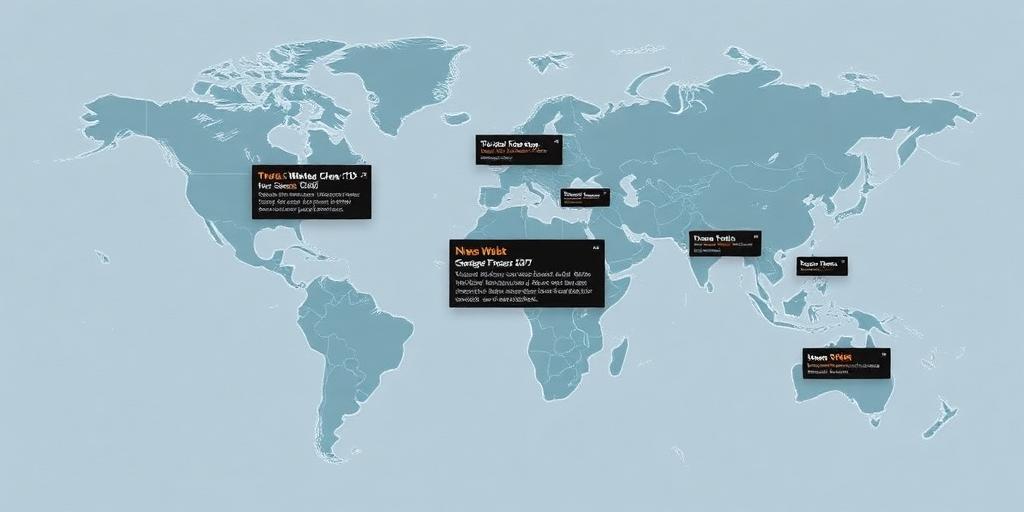In today's interconnected world, staying informed about global events is crucial, not just for personal awareness, but also for anticipating potential impacts on various aspects of life, including business, finance, and even personal safety. This article outlines key strategies for effectively tracking world news and assessing its potential consequences.
1. Identify Reliable News Sources:
- Diverse Perspectives: Rely on a variety of reputable news organizations with different viewpoints to gain a balanced understanding of events. Consider sources from various countries to avoid biases.
- Fact-Checking: Prioritize news outlets known for their commitment to accuracy and fact-checking. Be wary of sensationalized or unverified information, especially from social media.
- Expert Analysis: Supplement news reports with analyses from experts in relevant fields (e.g., economics, political science, international relations) to gain deeper insights.
2. Utilize News Aggregators and Alert Systems:
- News Aggregators: Employ news aggregators like Google News, Apple News, or Feedly to consolidate news from multiple sources into a single feed. Customize these platforms to focus on topics and regions of interest.
- Alerts and Notifications: Set up alerts from news providers or use tools like Google Alerts to receive notifications about specific keywords or events. This allows you to stay informed in real-time.
3. Focus on Key Indicators:
- Economic Indicators: Monitor economic data releases (e.g., GDP growth, inflation rates, unemployment figures) from major economies and international organizations like the IMF and World Bank. These indicators can signal potential shifts in global markets.
- Political Developments: Track political elections, policy changes, and international agreements. These events can significantly impact trade, investment, and geopolitical stability.
- Social and Environmental Issues: Pay attention to social unrest, humanitarian crises, and environmental disasters. These events can have far-reaching consequences, including supply chain disruptions and refugee flows.
4. Assess Potential Impacts:
- Scenario Planning: Develop different scenarios based on potential outcomes of key events. Consider the best-case, worst-case, and most likely scenarios, and plan accordingly.
- Risk Assessment: Evaluate the potential risks associated with each scenario. Identify vulnerabilities and develop mitigation strategies.
- Impact Analysis: Analyze the potential impacts on your business, investments, or personal life. Consider both direct and indirect effects.
5. Stay Updated and Adapt:
- Continuous Monitoring: World events are constantly evolving, so it's essential to continuously monitor the news and adjust your assessments as new information becomes available.
- Flexibility: Be prepared to adapt your plans and strategies as needed. The ability to respond quickly to changing circumstances is crucial in a dynamic world.
By following these strategies, you can enhance your ability to track world news effectively and anticipate potential impacts, enabling you to make more informed decisions and navigate an increasingly complex global landscape.









